Microsoft has been busy over the past year or so expanding its Xbox Game Pass offering, acquiring new-first party studios, and introducing Project xCloud and Scarlett.
In order to learn more of what’s happening behind the scenes at Team Green, Twinfinite had an extensive chat with Xbox Games Marketing Manager Aaron Greenberg at Gamescom in Cologne, Germany.
Twinfinite News Editor Giuseppe Nelva: Just a few days ago, a Microsoft representative was cited mentioning that there are no plans for more first-party games on other platforms, is that correct?
Aaron Greenberg: Yes.
Giuseppe: Could you elaborate on the reason?
Aaron Greenberg: This is what we said, because it’s very specific.
We more than doubled our studios over the past year, and as these new studios are transitioning, some of them had existing arrangements to publish games across multiple devices, but going forward these new studios will focus on making games for our platforms and we have no plans to further expand our exclusive first-party games to other consoles.
Giuseppe: So it isn’t a change of plans, but simply previous obligations that have now run their course?
Aaron Greenberg: That is correct, yes. With that said, we always want to put the gamer at the center of everything we do, so we want to support cross-play and cross-progression, we realize that gamers are going to play games across consoles and PC and we want to allow them to stay connected.
So when developers can support cross-play and cross-progression we’re supportive of that as well.
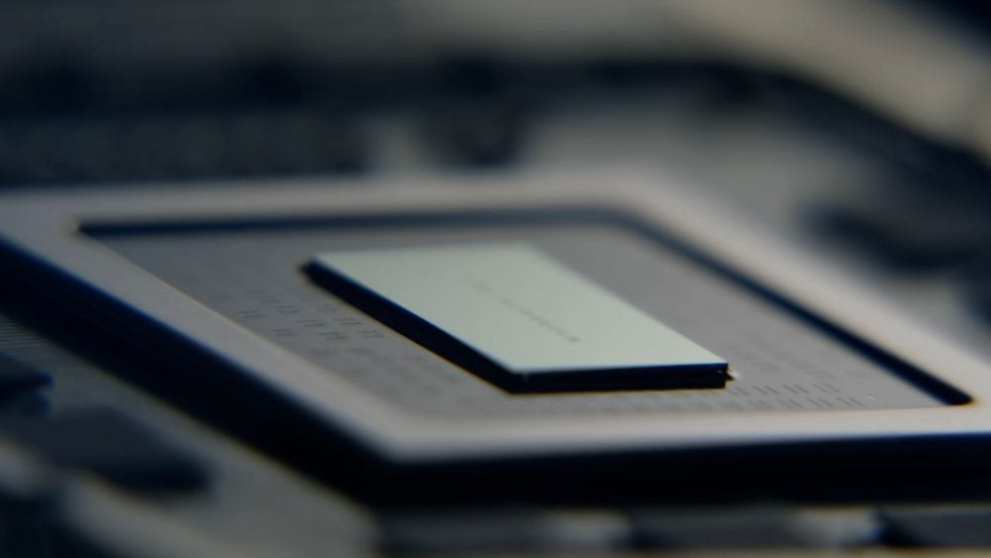
Giuseppe: If in the future a studio comes to you with a pitch of a game that can benefit from being on multiple platforms, do you think Microsoft might consider allowing that?
Aaron Greenberg: Our internal studios are focused on making games for our platforms, Xbox and PC. We have a set of teams that are working on exclusive first-party games and we don’t plan to make changes to that.
What I’m excited about is that we’ve added eight new studios and each of these studios that we acquired is working on multiple projects.
There is going to be a lot of new games coming out on Xbox I think fans are going to be really excited about, and more than ever before probably in the history of Xbox. That’s incredibly exciting.
Giuseppe: You did acquire tons of studios, so… are you done or is there more coming?
Aaron Greenberg: It’s a tough question to answer. What I would say is, we were very deliberate. I think Phil spoke to this as well: there was a period of time in which we were very focused on adding more content to our first-party studios.
At E3 a year prior we announced five new teams that joined. Then we added two more at XO, and then Double Fine this year.
It’s been exciting and it’s been great getting to know all these teams, going out and sitting down with Ninja Theory, or the team at Obsidian or inXile, and seeing the stuff that they’re working on now that people know about and the secret things they have in the works that people don’t know about yet. We’ll in time be sharing more about those.
I think we feel good about the level of content we have coming from our internal studios, but we felt good about that and then the opportunity with Double Fine came and that was a perfect fit.
You never know, but right now I think where we are, with our 15 internal studios, we feel really good about the amount of content we’re getting from that, whether it’s supporting Project Scarlett, or supporting Xbox Games Pass on PC and console, we feel like we have a healthy set of content across multiple genres, multiple game types, that will excite our fans.
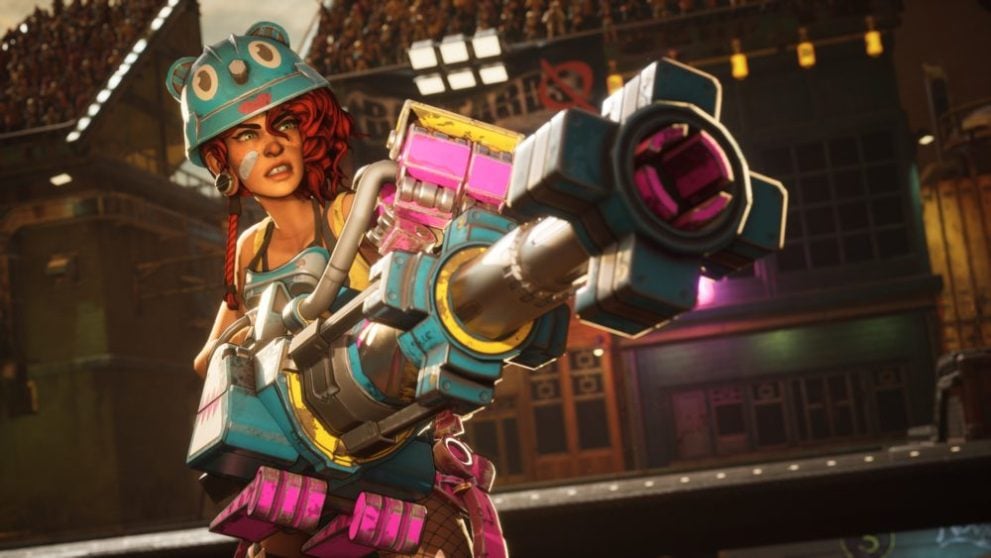
Giuseppe: Speaking of first-party teams, at times we hear about meetings between the heads of your studios. Could you talk about how that works?
Aaron Greenberg: Matt Booty is our head of Xbox Game Studios and I would say those are some of my favorite meetings because you get these incredible leaders and really a diverse set of folks.
Think about someone like Bonny Ross who oversees 343 and the Halo franchise, or Alan Hartman who runs Turn 10 and the Forza franchise, and then you add somebody like Brian Fargo who was there in the Interplay days, Gavin and the team at Playground… they have a deep history building racing games.
I should mention Rod Fergusson and his team at The Coalition, Helen Chiang and the Minecraft studio, Jeff Strain and the team at Undead Labs… There are so many great teams and it would take me a long time to mention all fifteen of them.
I do feel like I’m a table of royalty during those meetings and there is a lot of collaboration an sharing of tech and engines…
To put that kind of creative talent together, I think what Matt has done that’s really inspiring, is bringing them together as a team, and how do you think about what does it take to make great games, and how the teams work together, and how they share tech, and how they work collaboratively.
There is a lot that people don’t see, but the teams do really help support each other on the back end.
How do we map a controller on this game, how do we solve this problem, or an engine tech thing, or whatever it may be.
These teams don’t have to operate always alone, and it’s great to see Craig Duncan going down to meet with the team at Ninja Theory as they’re in the U.K. I think they hosted like a pic-nic and brought people together.
It’s really fun, and I think what we’re building is like a family. I think the result of that is that people really form bonds, they share knowledge but also you get better results.

Giuseppe: Lately there has been a rather heated discussion on censorship around Sony and Nintendo.
Sony has begun applying specific standards asking many developers (especially Japanese) to further censor their games regardless of whether they obtained a valid rating from boards like the ESRB or PEGI.
On the other hand, Nintendo has taken an entirely different stance, opting not to require any censorship as long as developers can obtain a valid rating from ESRB, PEGI, etcetera. Nintendo’s president went on record stating that acting otherwise would “hinder game software diversity and fairness.”
The one factor we’re missing in the equation is what we can expect from Xbox going forward. Could you please comment on that?
Aaron Greenberg: I’m not familiar with this specific issue. So Sony changed their policies?
Giuseppe: They certainly appear to have. They used to be the first-party that almost never required additional censorship before.
Aaron Greenberg: While I’m not familiar with what they’re doing and I cannot speak in their behalf, we have not changed our policies.
We have store policies, we follow the ESRB and the other rating boards. We have been consistent in how we do that, and we haven’t changed what we’re doing.
Giuseppe: So is it a position closer to Nintendo’s, where a game that can get a rating doesn’t require further censorship?
Aaron Greenberg: I think what you’ll find across everyone in the industry, there is ratings and then people also do concept reviews and they have policies on the type of content that they’ll allow on their store.
Generally, that does map to what the rating boards are. What I can say is that we haven’t changed the way we do that and we haven’t put any type of new or unique restriction on content providers.
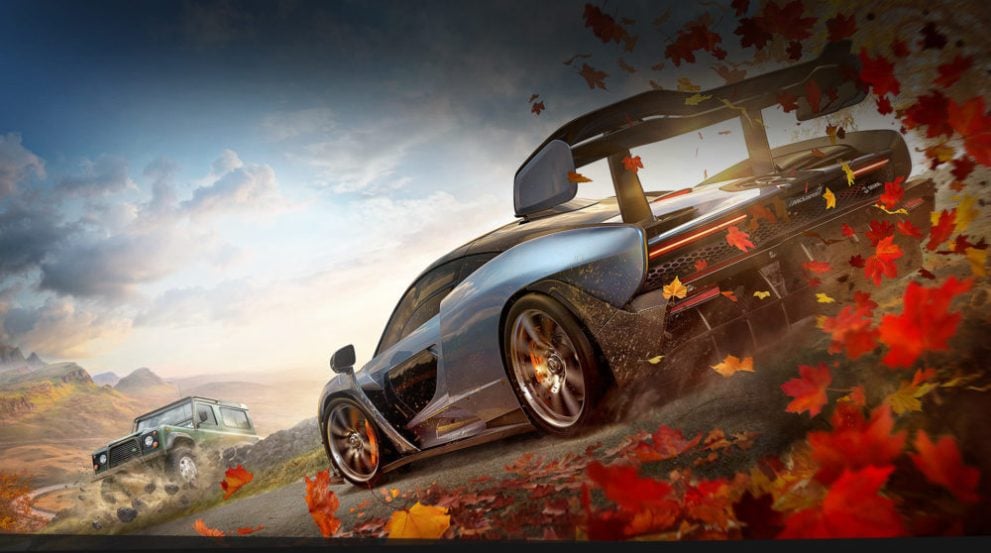
Giuseppe: Let’s talk about XO 19. It seems to be shaping up as a really big event. Could we say that it’s almost as big as E3?
Aaron Greenberg: Nothing is ever as big as E3. I would say that’d be setting expectations too high.
E3 is incredible and I think E3 will always be really special, and we’re really excited about what we had at E3 this year and the response to that.
As we get into the Holidays, we really brought back the spirit of XO, which really was all about doing a celebration of all things Xbox. E3 is traditionally more of an industry event, whereas XO for us is really focused on the fans and our gamers who just want to celebrate with us.
That’s what we did at XO last year in Mexico City and that’s what we’re doing at XO19 this year in London.
We do an Inside Xbox Show, we do a live show. It is our biggest Inside Xbox show of the year. We have a lot of surprises planned. We have a lot of content coming both from Xbox Game Studios, as long as third-party partners.
We’re going to the Copper Box Arena. I was there for MineCon a couple of years ago. It’s a beautiful venue that was built for the Olympics.
Obviously we have a huge fanbase in London but we’re inviting people from all over the world to join us. We have room for thousands of fans over three days.
It’s going to be an incredible celebration of gaming. We’ve made tickets really affordable at £19 and all the proceeds are going to charity. We’re hoping to create memories that people will never forget.
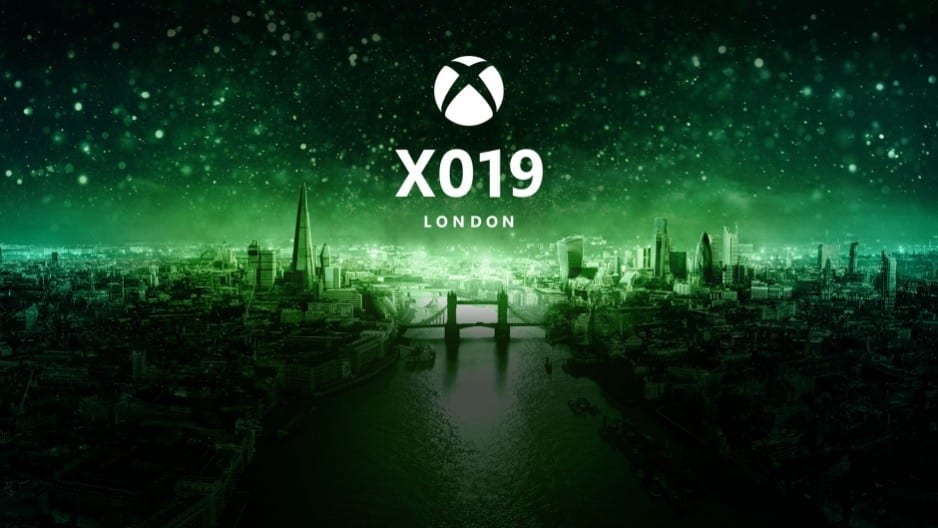
Giuseppe: Are we going to see games that we’ve never seen before?
Aaron Greenberg: Yes.
Giuseppe: Excellent. There is one game that I really want to see, from a certain British studio…
Aaron Greenberg: Here’s my philosophy on surprises: If I tell you, it’s not a surprise anymore.
As a gamer, part of the fun is that people love to be surprised. What is going to happen? What is going to be announced? It’s just like when you sit down at E3.
Giuseppe: So there’ll be new announcements.
Aaron Greenberg: We have some surprises planned. I’ll just leave it at that. But yeah, I think that we’ll have a great show.
We also have a lot of games coming out in the spring, It’s I think the biggest lineup of games we’re ever had in the spring. In that window of time between XO and E3, we have a lot of stuff to show, and people can get hands-with it and talk about it.
So that will hopefully be some goodness for the fans that at that point will have already make their holiday purchases, and they’ll be thinking about what they’re going to play in the spring, and what’s coming to Game Pass in the spring, and so we can start talking about that as well.
Giuseppe: Let’s talk about Game Pass, it’s been two years. How is the service progressing? Is it a success?
Aaron Greenberg: I think Game Pass has quickly become the leading subscription service in video games.
What you’ve seen is that we’ve really focused and built the service in partnership with our gamers and our development partners.
Those two ingredients are really key because one is letting gamers discover their next favorite game, and find games that they didn’t know about and they’d love to play. There is delight and joy that comes out of that in addition to just the great value you get as part of the service.
We wanted to overdeliver on value for our fans. That’s why we put all of our first-party games day and date into the service.
That alone, if you don’t play anything else, makes the service worth it.
But then you go and discover all thse great third-party games and all those fun indie games that you may have never even discovered before, and those games become hits.
Because they’re able to create an audience there are games like Human Fall Flat which is a very fun puzzle game, which have built a huge audience now. There are so many of these games like that.
Those games may not have been able to reach that big an audience before, and because they have that audience, in many cases developers can go create a sequel or another new game they want to make as a team.
I think that’s a positive for developers. It’s a positive for gamers. And I think it’s one of those things that make Game Pass so interesting.
The other thing that we find is that people who are in Game Pass spend about 40% more time playing games than people who aren’t in Game Pass, so it drives more time and consumption of gaming, which overall is a good thing.
It’s been great. The response of our partners has been good. Gamers have been really excited, and I think Xbox Game Pass Ultimate was something also our fans have said hey, I pay for Xbox Live Gold, I pay for Game Pass, and it would also be really cool if there was a Game pass service specifically for the PC. So we said yes, yes, and yes to all those things, delivering that at a great value, letting people stack their memberships like we did.
Again, it’s just putting the customer first and it’s ok to overdeliver on value for them. Long-term, that’s how we think about the business.
Giuseppe: Speaking with developers, I often hear that the one things you guys have nailed is discoverability: putting games in front of potential players who normally wouldn’t find them, whether they’re big or small.
Aaron Greenberg: That’s good to hear. Internally we don’t talk about games by size, and if you look at our E3 briefing or at our Inside Xbox shows, if it’s a team of two people making a game we still give them the same spotlight, and in many cases those games can be just as delightful as triple-A games built by a studio of hundreds of people.
That’s definitely our mindset, and it’s fun to be able to help small teams. Just look at the Moldenhauer brothers from Cuphead. Working them on a hand-drawn game… The first video game they have ever made became one of the biggest hits of the industry.
It’s fun to be able to support teams like that and help promote games of all sizes.
Giuseppe: let’s talk about one of the biggest surprises at E3: Phantasy Star Online. When Phil Spencers came to you and told you “hey, I brought home a seven-year-old niche game that was never localized” how did that work out?
Aaron Greenberg: I was sitting in the room and he literally walked in and said “Hey, I just had this incredible meeting with Sega, they’re such awesome partners…”
I was instantly excited because I played PSO when it originally was on the Xbox and on the Dreamcast. We have a lot of heritage with that.
There is still a number of fans, and we saw the reactions online, for some people that was their favorite part of all of E3.
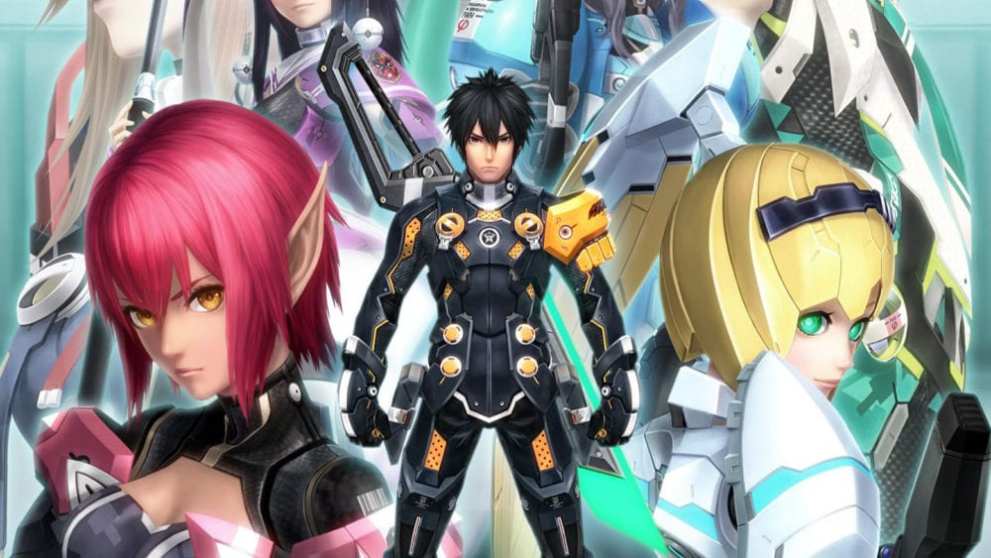
Giuseppe: It certainly was mine.
Aaron Greenberg: That’s awesome.
That’s the thing. We know there is a variety of different gamers and a variety of different content and different opportunities.
Bringing Phantasy Star Online 2 to Xbox, localizing it, I think it’s going to be great. We’ll delight the fans of the franchise who grew up with it, and also, we’ll introduce new people to the franchise.
It’s great for us. It’s great for Sega, and kudos to Phil for building these partnerships, and taking the time to go to Japan over and over and meet with those teams.
What’s great is if you go on those types of trips with Phil, he sits down there with the dev team, plays the games, he’s deep into the weeds…
Giuseppe: Oh I’d love to go (laughs).
Aaron Greenberg: Sorry. That wasn’t an official invitation. (laughs) We don’t normally let media into that kind of things, but I appreciate your interest. Maybe you can look through the window if you can figure out the day he’s there (laughs).
It’s fun. That’s what makes this industry so fun. It’s the love of games and how games bring joy to people’s lives. Some of the best creators in the world are in Japan, and if we can help bring their creations and their creativity to a broader market, I think that’s a great thing.
Giuseppe: Speaking about Japan. Do you think with Scarlett you guys have an opportunity to bring the Xbox brand back in a big way in the country?
Aaron Greenberg: Maybe. It’s a hard one to say. We have a lot of success in Japan with Minecraft. It’s one of our fastest-growing markets for Minecraft.
We will bring a very powerful box and a great library of content. I think we have a lot more Japanese support than we’ve had before. All those things are in our favor, but I’m always careful about setting the wrong expectations or making claims.
I have deep respect for the Japanese market and their tastes. We’ll see. They will decide. We definitely want to support the market, we’ll see what the consumers have to say and we’ll listen to their feedback.
Giuseppe: With Scarlett coming and a rather intense year ahead, what’s the mood like within the Xbox team right now?
Aaron Greenberg: This is an exciting year for us because we’re doing a lot of planning for the future. We have Project Scarlett deep in development. We’re obviously working on games for that as well and we’re working with our partners on stuff for that.
We have a whole team dedicated to building Project xCloud. We’re onboarding and working with more than twice the amount of creative internal teams.
I would say, it’s exciting, exhilarating, but also we have a lot going on. It’s fun to be innovating. It’s fun to be creating new, but I think we’re doing more than probably we have ever done before.
I think people get energized by that. I get energized by that. We have a really tight-knit team, very collaborative, and very focused strategically.
Our teams work very well together and I think we have a very healthy culture. Those are things that I’m really proud of.
People don’t see that we spend a lot of time on internal initiatives like our Gaming for Everyone initiative. We’re really purposeful about accessibility. People know the Adaptive Controller but there are also the accessibility features we build into a lot of our games…
We really want to to build a community where everybody feels they’re welcome. That’s not just when people go online, but also when people come to work at our studios and our teams.
I’m very proud of the culture and the leadership that we have and the way we operate as a team.
I think that makes me feel optimistic about having to achieve really big and ambitious goals and we have a great support from the company across all these initiatives, so we’re also very fortunate about not having to make tradeoffs.
We’ve got a lot of support in a lot of ways that many companies wouldn’t have that kind of resources or permission to do that. I’m excited.
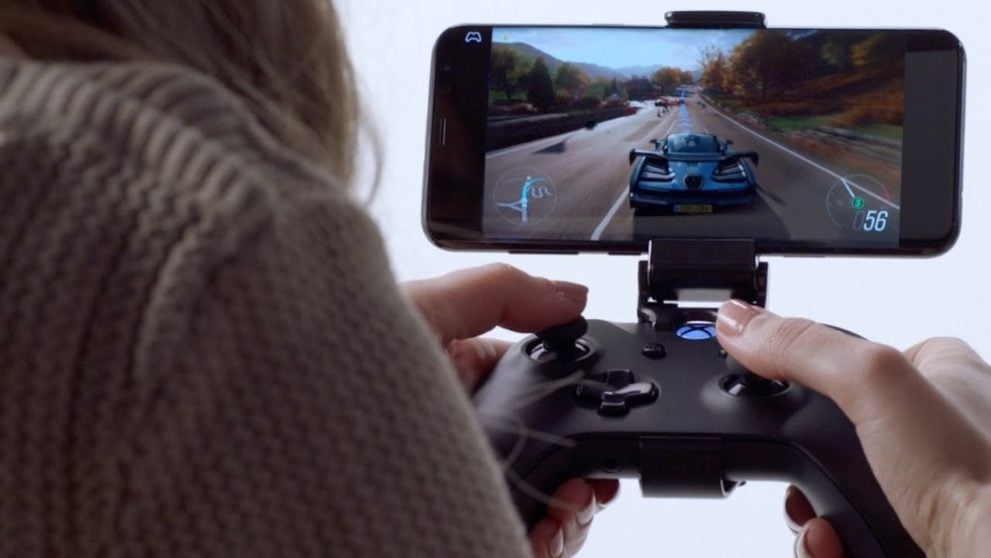
Giuseppe: Actually, that’s what I thought when I first heard of Game Pass, and especially when you announced that first-party games would be included day and date in the service. It must take a lot of resources and support from the company to do that at that price.
Aaron Greenberg: When we announced Sea of Thieves day and date into Game Pass people were shocked in some ways, but I think now customers loved.
I remember when we were first planning Sea of Thieves and I told the team: “it’s gonna take time for people to realize the value of that Game Pass has, but by the time Gears 5 launches day and date into the service, everybody is going to want to be a Game Pass member.”
At first, people were asking us to help them understand Game Pass and why they should subscribe. Then we started adding first-party games, and they were “oh wow, this is a really good value.” Here we are at Gears 5, and with Game Pass Ultimate we’re putting the Ultimate Edition of Gears in that to add even more value.
It’s been fun to see people react so positively. Word of mouth marketing is always the most powerful marketing and if we can deliver for our fans and they are advocating on our behalf, that’s a huge privilege and honor for us, and a real sign of success.
We’re likely to hear a lot more at XO19, which will kick off in London on November 14 and will continue until November 16.

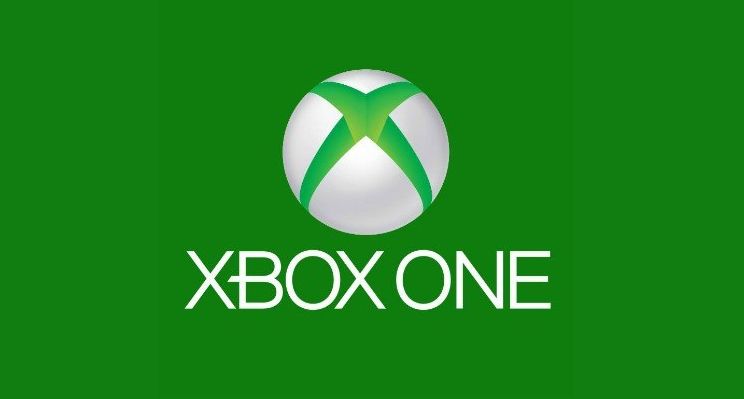











Updated: Aug 27, 2019 06:31 am